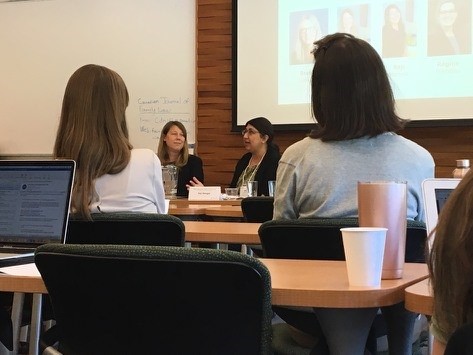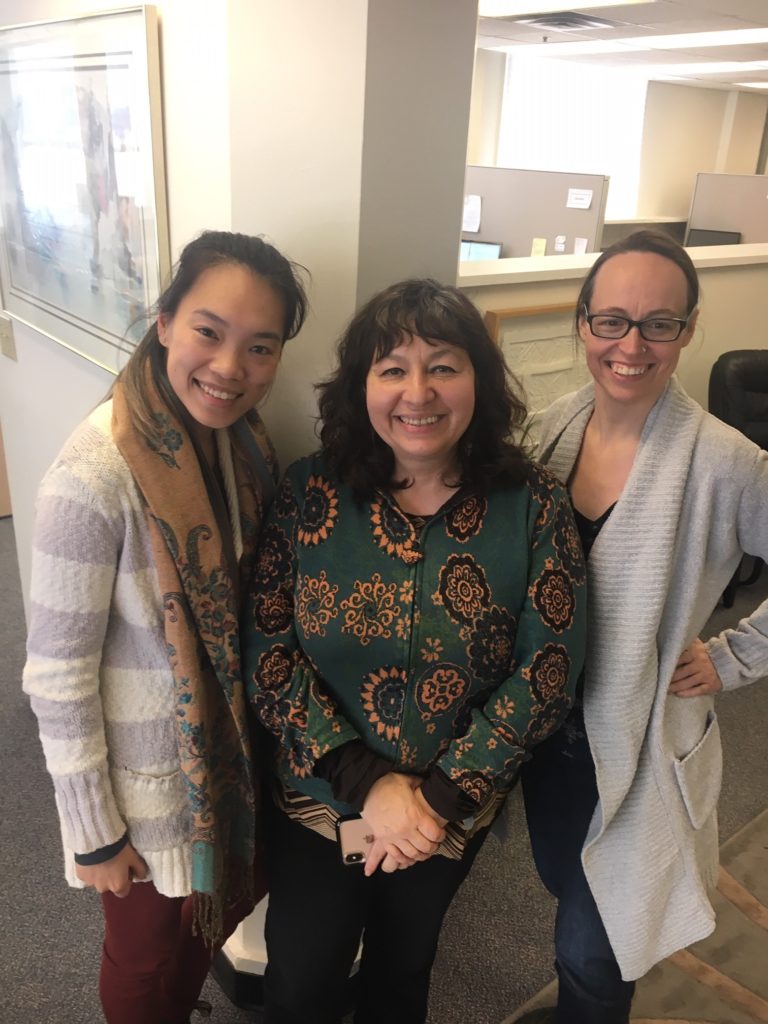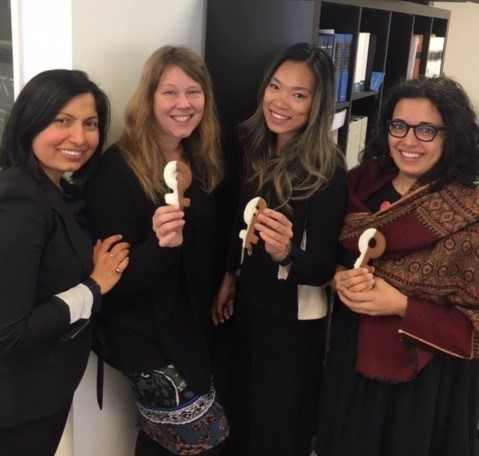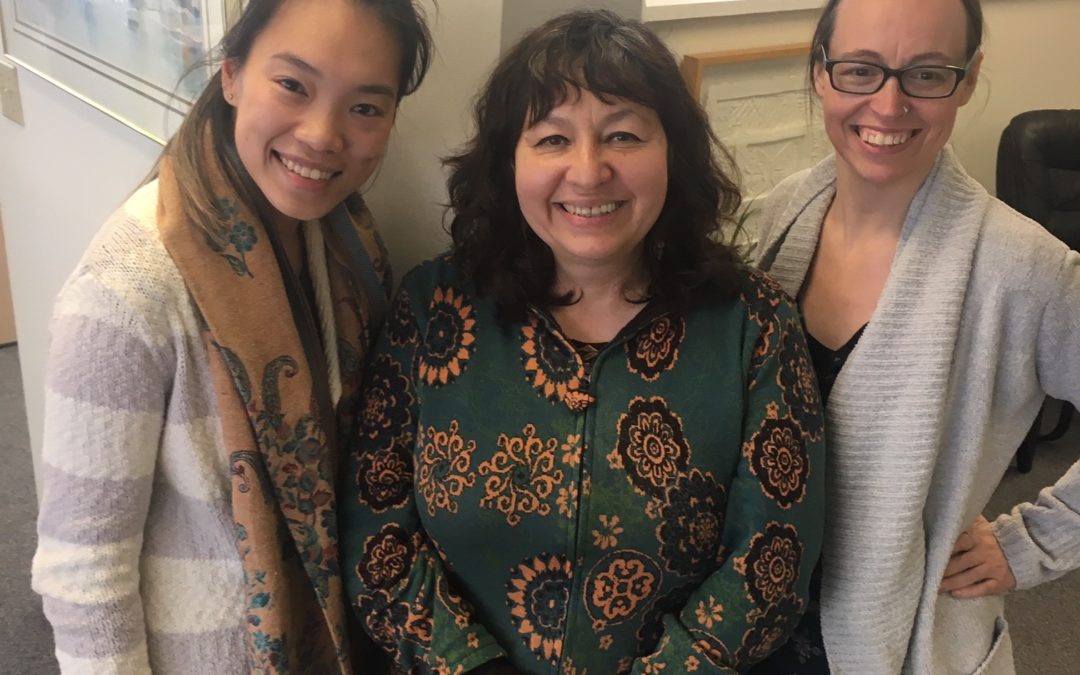
Kim Hawkins (Rise ED) & Raji Mangat (West Coast LEAF Litigation Director) speaking on family law reform at the Peter A Allard School of Law’s Shifting Normativities Conference
Family law is the one of the most significant unmet areas of legal need in BC and disproportionately impacts women, particularly women facing intersecting oppressions. Rise is working to change that.

Vicky Law (Rise Program Lawyer), Rosa Artega (BWSS), and Andrea Bryson (Rise Case Manager). Rise is fortunate to have colleagues from other feminist deliver organizations like BWSS providing our students with information and resources as they enter the legal profession.
The original vision for a student clinic serving women in Vancouver was the result of many of years of research conducted by West Coast LEAF, which identified the desperate need for affordable, and accessible legal services for women in the province. In 2016, West Coast LEAF partnered with the Peter A. Allard School of Law at the University of British Columbia and a major anonymous donor to make Rise a reality. Since opening our doors more than 30 law students have completed their training at Rise and worked with more than 1000 women seeking legal assistance. We are thrilled to work collaboratively with a dynamic community of feminist organizations in Vancouver and around BC.

Rise staff (Taruna Agrawal (FASL Lawyer), Kim Hawkins (ED), Vicky Law (Program Lawyer), Vandana Sood (Supervising Lawyer) pause to smile for International Women’s Day
Rise is changing lives by:
- Providing services to women with family law and immigration matters who would not otherwise be able to access legal services, particularly women who are economically disadvantaged, women who are members of marginalized groups, and women seeking protection from family violence.
- Employing and mentoring law students in family law, community law; we are teaching law students to identify systemic issues, and view law through a feminist and intersectional lens.
- Learning and sharing best practices for women-centred legal service through collaborations with other organizations and community partners.

